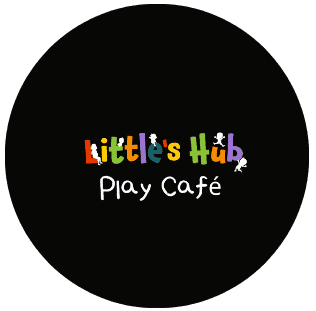Little’s Blog…
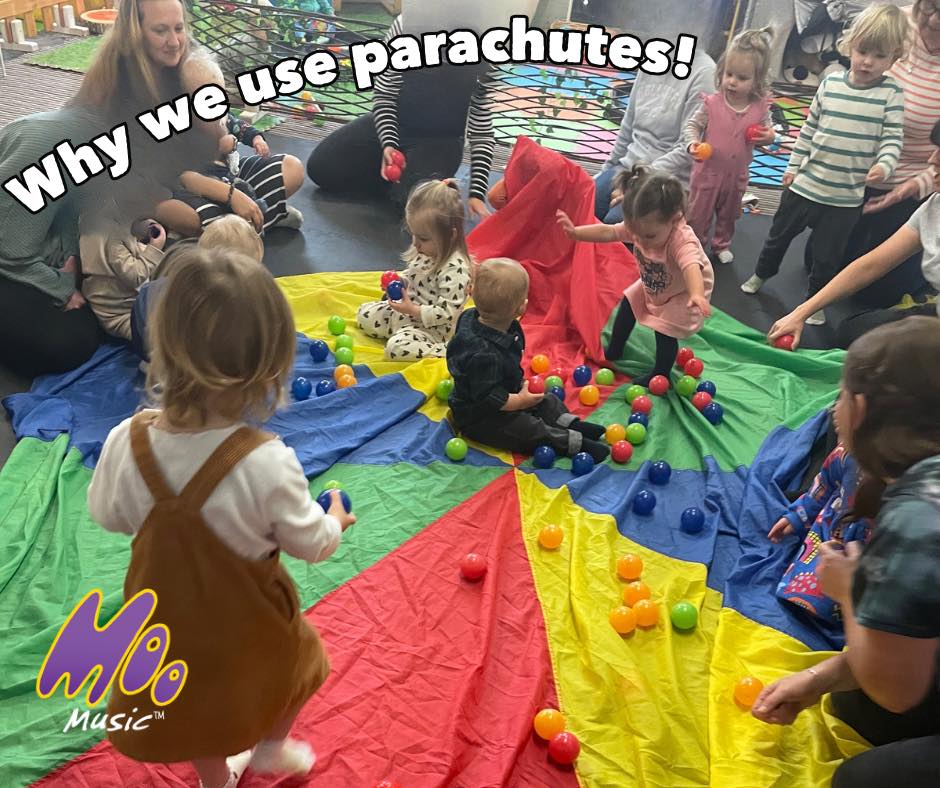
Why we use parachutes 🪂
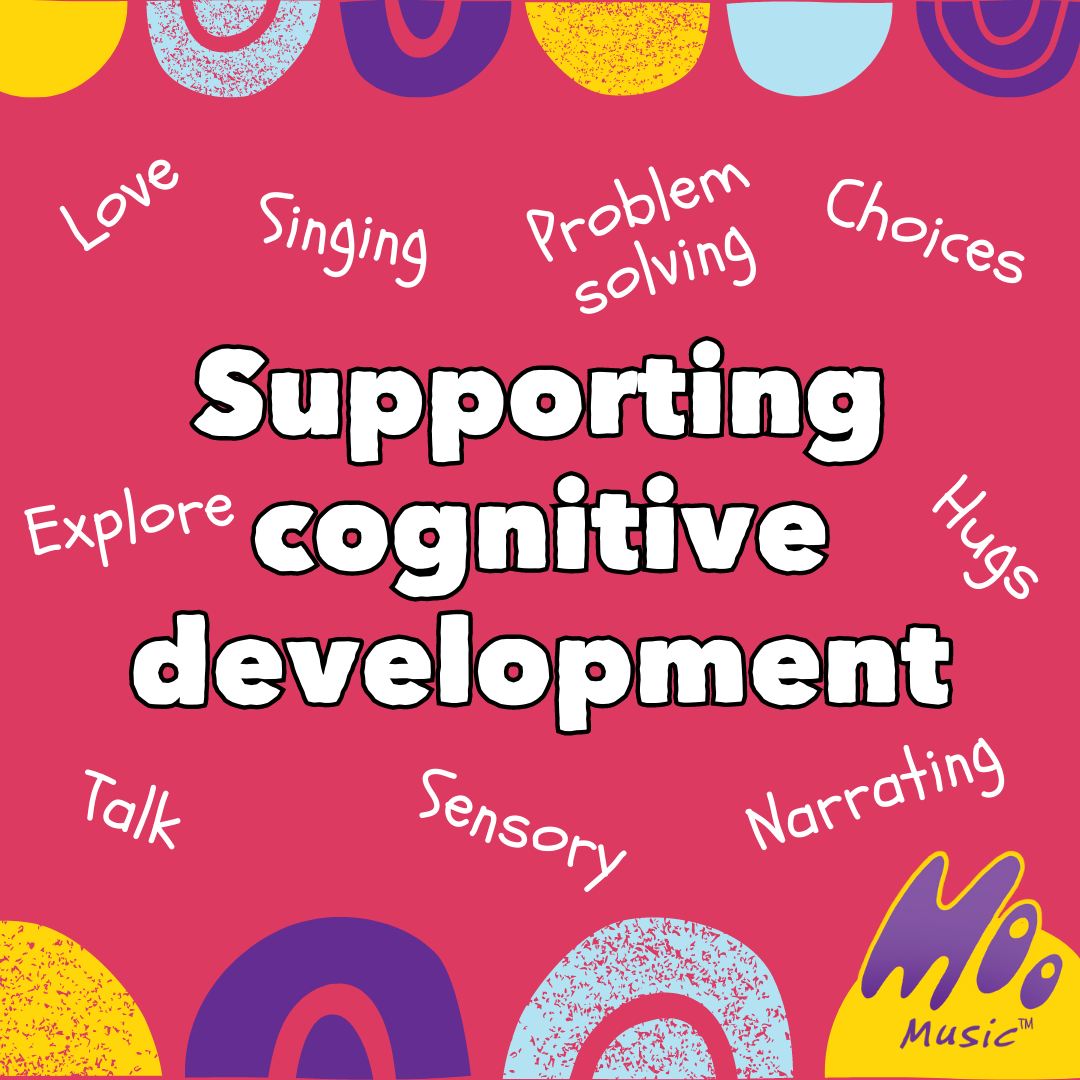
🤔 Do babies just need love and hugs? ❤️👐🏻
So what is cognitive development and why is it important? In a nutshell, it’s how your little one thinks, reasons, remembers and understands the world around them. It involves processes such as attention, problem-solving, language development, memory, and decision-making.
While some may claim that babies just need to be loved and cuddled, it’s also really important to spend quality time interacting with your baby or toddler every day to help their brain develop.
You can do this by:
🌟 Singing to your baby/child
🌟 Talking to your baby/child, naming objects and narrating what you or your little one are doing
🌟 Reading books to your little one
🌟 Answering “why” and “what’s that” questions
🌟 Give them choices
🌟 Encourage them to explore different ways of solving a problem
At Moo Music and Little’s Hub we encourage your little ones to explore many of these skills and more, while showing you how you can support their learning at home. 🏠💡
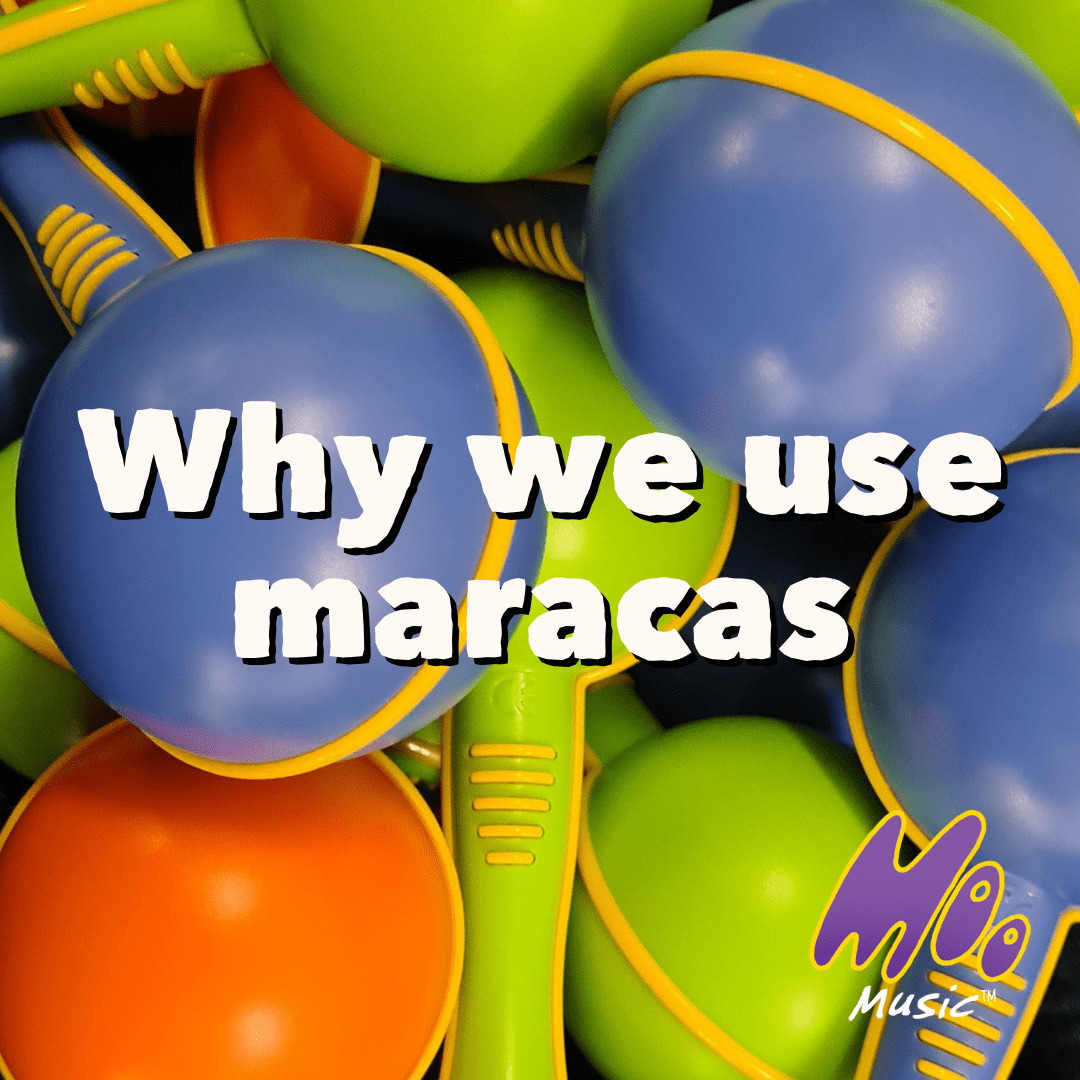
WHY WE USE MARACAS?
|
As one of our key pieces of equipment at Moo Music, maracas support development for every age! |
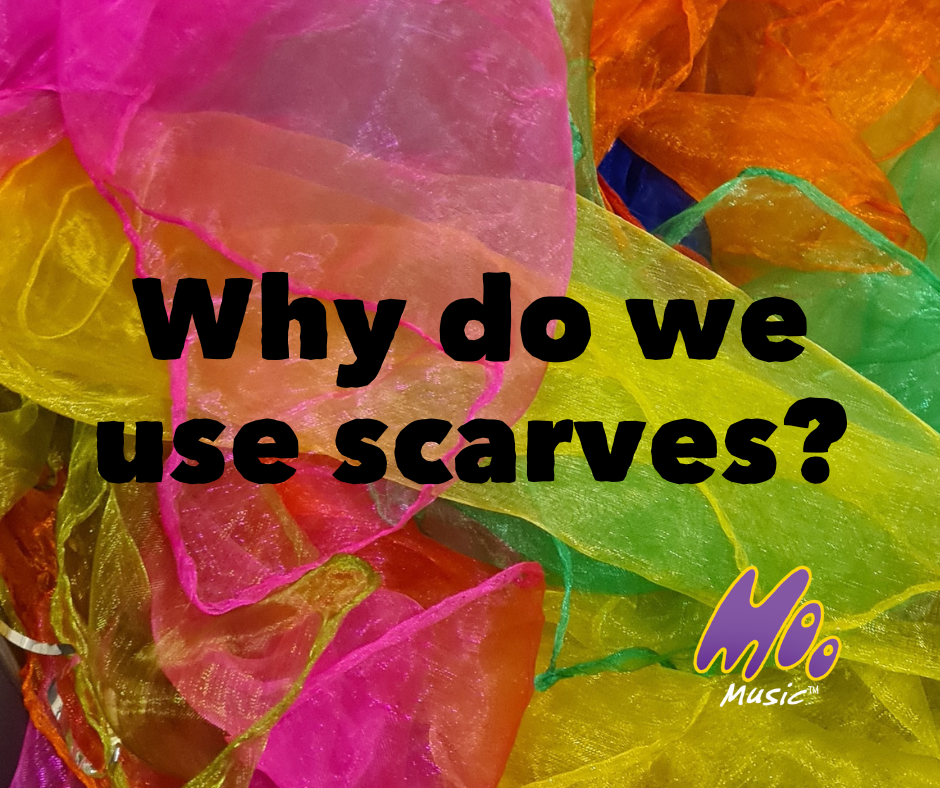
WHY DO WE USE SENSORY SCARVES?
| Sensory scarves 🧣 are a key piece of our equipment, but do you know why they’re important? 1) Texture – with a light weave these scarves feel smooth to touch, with a coarseness near the edges. This change in texture helps to stimulate the nerves in finger tips ✋ (or mouths! 💋) 2) Movement – this light and airy fabric moves in a slower, 🐌 floaty, more billowing way, which makes it easier to see and focus on for developing eyes 👁️ 3) Fine & gross motor skills – grasping, pincer grips, holding, waving and hand-eye coordination come into play as we practice waving scarves. 3) Colour 🌈– the bright and contrasting colours of sensory scarves make them easier to see, provide contrast which helps young eyes to focus, improving muscle tone around the eyes. 4) Peekaboo 🙈 – an important game for little ones! Translucent scarves can hide you, them or objects so they can magically reappear! This helps little ones understand object permanence – that things still exist even though they can’t see them! |
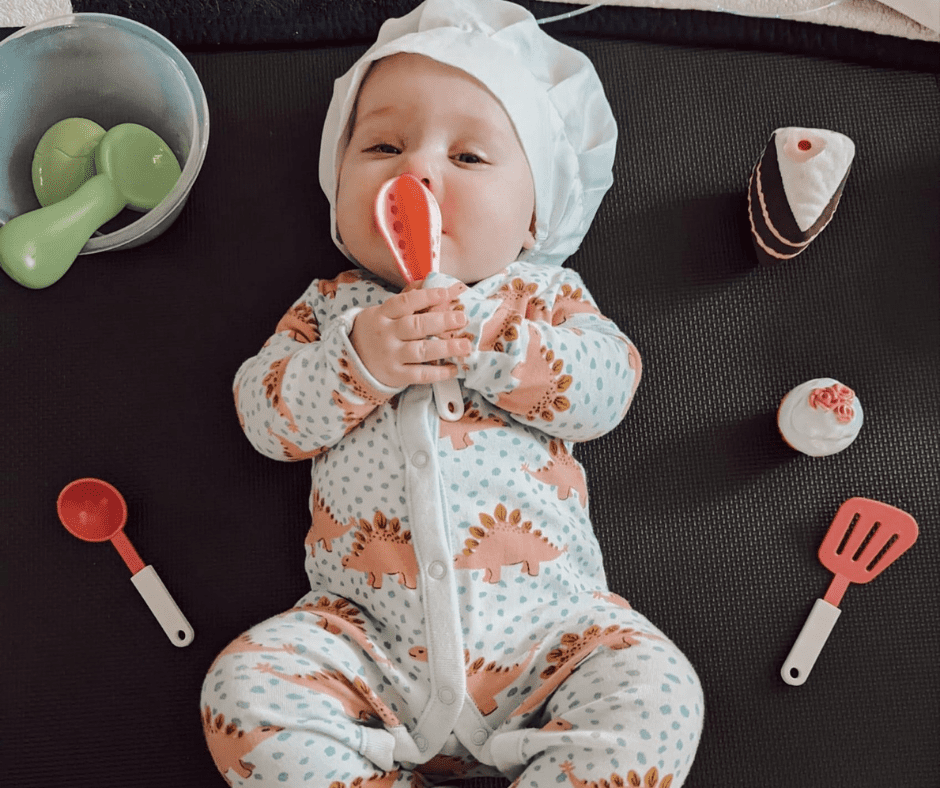
🌟SENSORY PLAY AT HOME🌟
Sometimes you may miss your favourite baby class, but you don’t have to miss out on helping your little one’s development.
Your home has a rich abundance of sensory experiences for your little one. You just need a little imagination and a bit of confidence to explore it with them.
🥄WOODEN SPOON AND METAL PAN/TRAYS
It’s a well worn cliché but it works! Baby develops gross and fine motor skills, learns about cause and effect, and has some interesting textures to explore – and they just LOVE chewing on wooden spoons!
🖐TIN FOIL
Don’t underestimate this humble material, the shiny foil reflects colours and creates high contrast visuals when crinkled, helping baby to focus their vision and build those important eye muscles.
The sounds it makes when scrunched helps them understand cause and effect. Gross motor development is enhanced as they grab and throw it around, swish their feet on it and they progress into fine motor skills as they pick small pieces off (keep an eye out for putting these bits in mouths)
And when you’re finished, it can become a large ball to play with (if they don’t squash it too much).
🎨 EDIBLE PAINT (yoghurt & food colouring)
Easily the messiest thing in the world, but the developmental experience your little one gains from this activity is priceless. Discovery of textures, temperatures and new flavours are key areas of development with this activity.
Make sure your protect fabrics and surfaces from stains – you can buy a shower curtain for a few quid specifically for messy play at home.
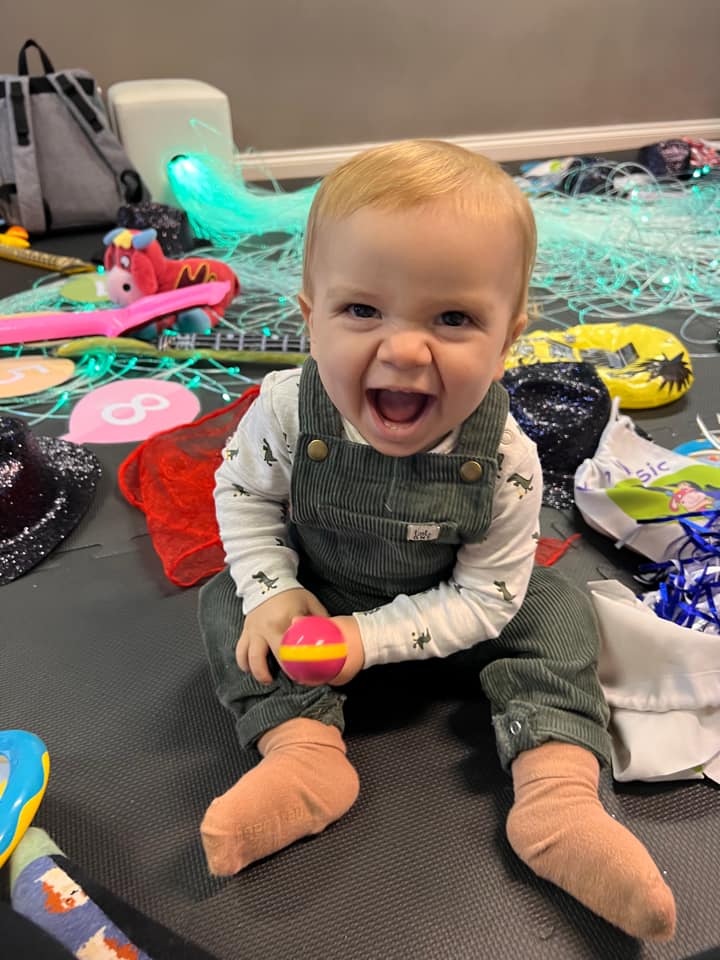
MUSIC SOOTHS THE SAVAGE BEAST....
Or so they say. It’s well known that toddlers are physically and developmentally unable to regulate their emotions (hello toddler tantrums!).
The emotive power of music can help toddlers to understand their feelings better, calm down and improve their moods!
For the little people in our lives, the world is new and fascinating, but also challenging and frustrating – especially when they don’t yet have the words to explain how they feel.
Listening to music can empower young children to get in touch with their emotions and reduce their stress levels. Even listening to sad music can be cathartic, helping toddlers to relate to music in a way their unable to articulate.
At Moo Music classes we regularly explore different types of music with contrasting energy levels (Sleep Wake up, anyone?)
Come and join us every week at the hub…
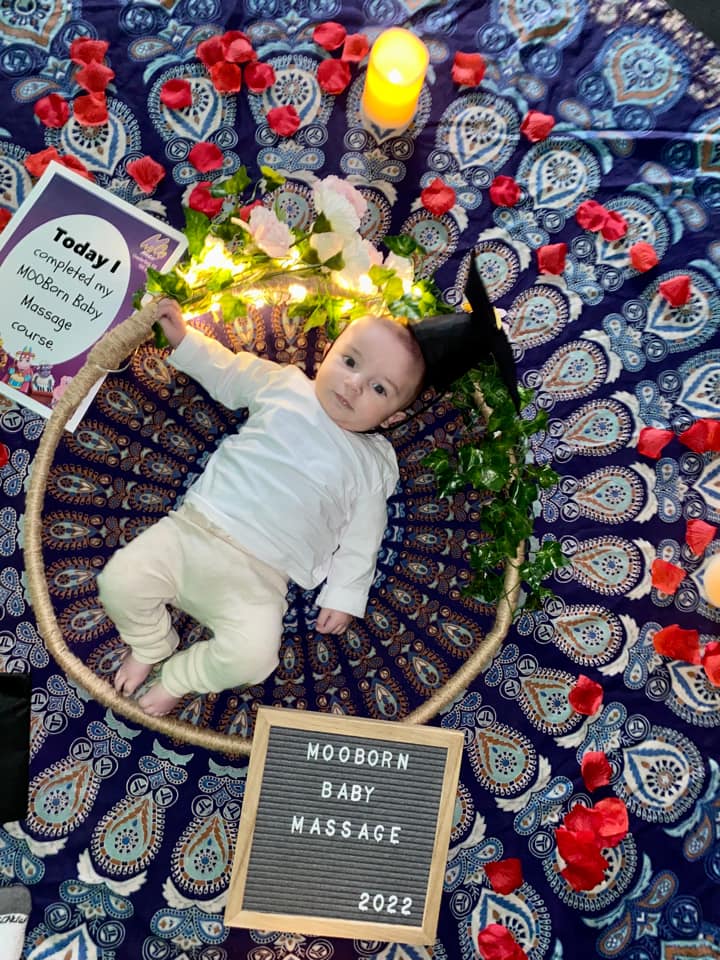
WHY BABY MASSAGE?
Baby Massage has a multitude of benefits for both you and your baby. As well as a relaxing and beautiful bonding experience for both you and your baby, building massage into your routine can help with a number of common infantile ailments such as colic, reflux, constipation and teething pain. Massage can also support many areas of development including body awareness, brain development, coordination, gross and fine motor skills as well as improving circulation and your little one’s immune system.
Did you know that act of massaging your baby can also help with postnatal depression? By creating that loving bond between you and your baby through positive, loving touch, as well as building your confidence as a parent.
Baby massage should always be baby-led, never force massage, or massage a sleeping baby! Your baby must always feel happy to accept massage, by reacting to your babies’ cues, you will help your baby to feel loved, valued and respected and turn strengthen your loving bond. Did you know we are one of very few, running a specific Baby Massage course in Derbyshire? So why not book in for our January course starting Monday 9th January?
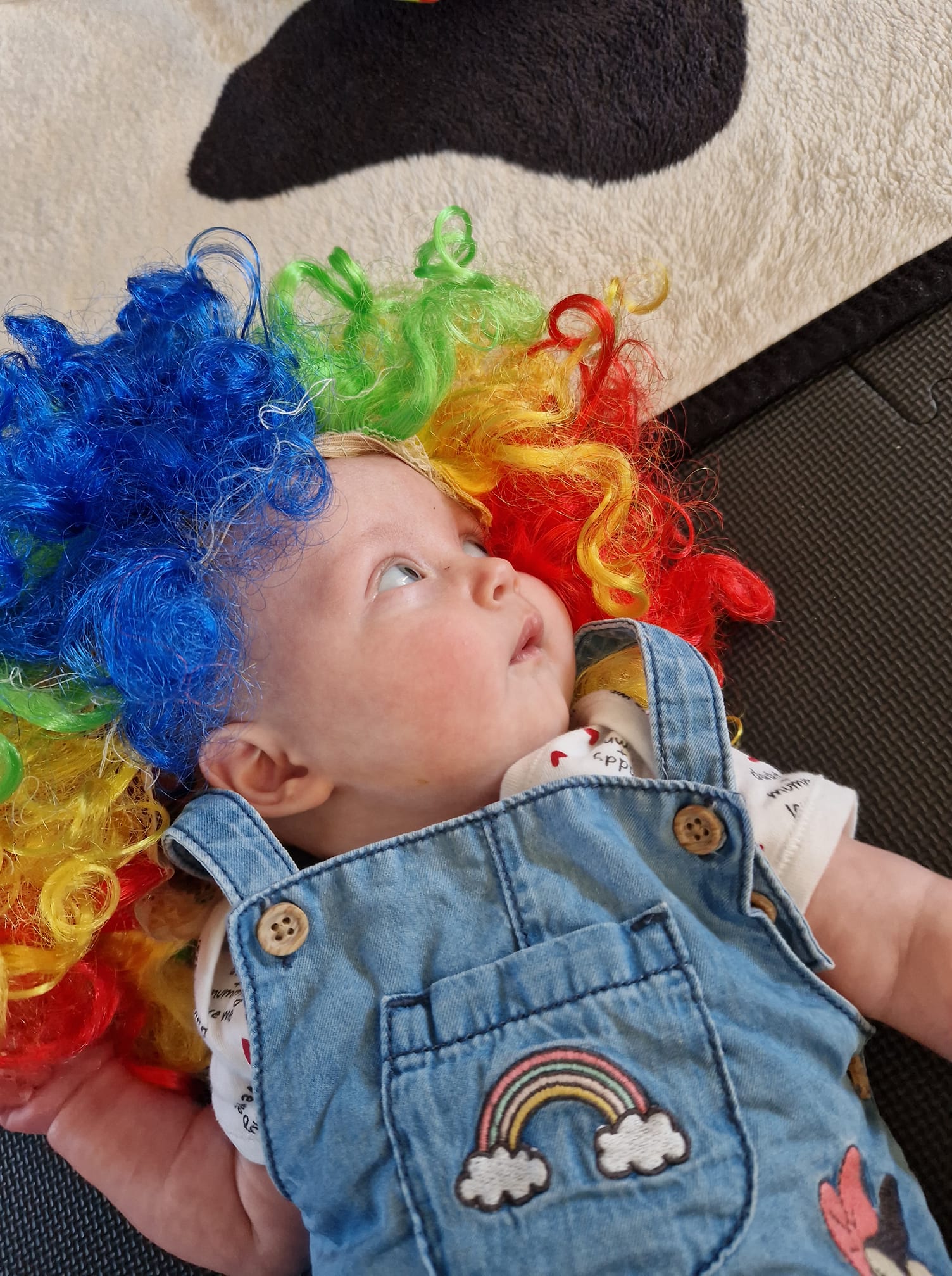
The First 12 Months...
Did you know that during the first 12 months of life, a child’s brain will double in both size and weight!
Multi-sensory experiences are key during this time to help build foundations in the brain, which they will use in later life. It is recommended that multisensory interactions should be at the core of early care for babies (WHO/UNICEF 2012).
The first 6 weeks are vital for developing the senses and building brain connections. Touch is such an important part of a newborns development and progresses very quickly. You will notice that certain areas of your baby’s body are very sensitive to touch, such as the soles of the feet and palms of the hands – so pay particular attention to those areas.
Before they are even born, a baby can hear sounds inside the womb and will recognise daily sounds (i.e., their parents, siblings and even pets). Music is an essential part of every child’s development and stimulates all areas of the brain, producing chemicals such as oxytocin (the love hormone).
Multi sensory and music classes provide the perfect environment for exploring, allowing your baby to feel safe, confident and with a little repetition – familiar with the perfect mix of exposure to new experiences.
